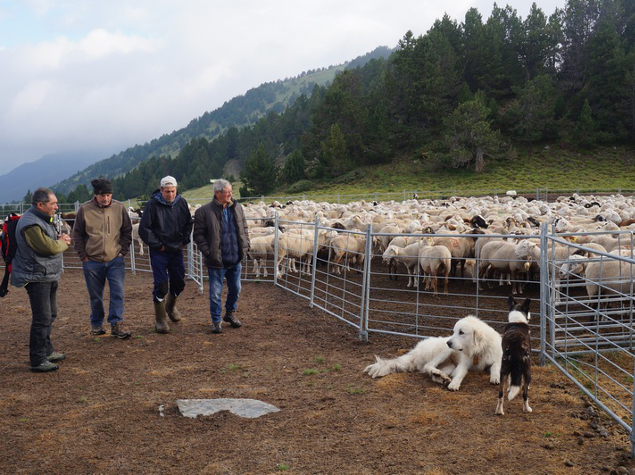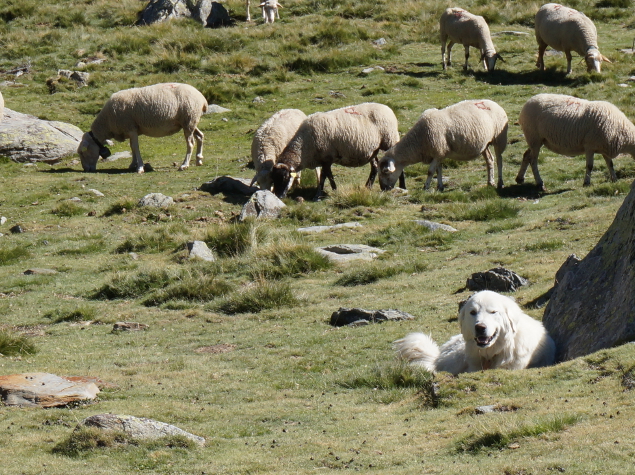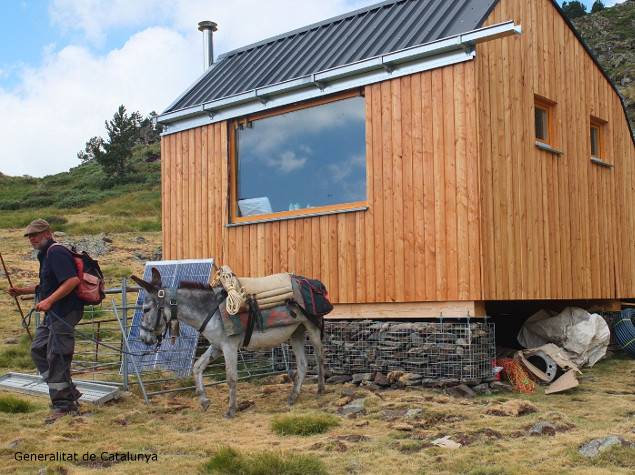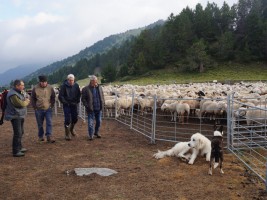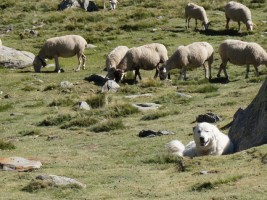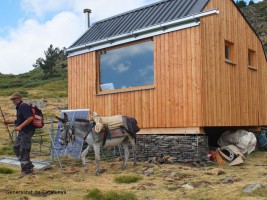Spain
Conservation of brown bears in the Pyrenees through active measures to foster their peaceful coexistence with local livestock farmers
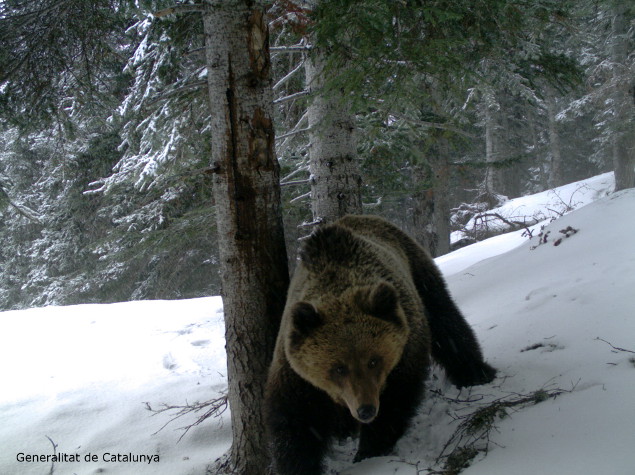
The key to the future of brown bears in the Pyrenees is their peaceful coexistence with local livestock farmers. Through the grouping of various flocks of sheep and their protection by specialized shepherds, sheepdogs and other means, damage by bears has been significantly reduced in recent years, thus fostering local acceptance of the species and greatly increasing the possibilities for recovery. This momentum must continue.
The main objective of this project, managed by Acciónatura, is to improve local acceptance of the increasing presence of brown bears (especially among the local stock farmers) through:
- Continuous active measures in the field
- Communication focusing on the success of effectively protected flocks, decent working conditions for shepherds, peaceful coexistence, and the tourism potential of this new scenario.
The secondary objectives are to:
- Provide long-term infrastructure for extensive sheep grazing in the mountains
- Set the foundations for a ‘rewilding’ scenario
- Maintain meadows of botanical interest that depend on grazing and stop forest encroachment over a large area
- Educate the general public and tourists on both the Spanish and French sides of the Pyrenees by providing concrete data and information to show that conservation of the brown bear is possible and that coexistence is necessary and beneficial for all concerned
- Specifically show how the program can benefit farmers. By grouping flocks, they obtain financial benefit, since they receive a given amount per sheep grazing in bear habitat
To reach these objectives, various initiatives are planned:
- Construction of a wooden cabin for shepherds, using sustainable construction criteria, to provide acceptable comfort for shepherds taking care of eight or more different flocks, as an operational prototype to be potentially extended to other valleys in the near future.
- Shepherd recruitment and pasture leasing. The ‘grouping’ of flocks is in some ways an added difficulty for some of the shepherds, who have to change their habits and very often have to stop grazing their traditional lands. In order to provide enough pasture, Acciónatura is leasing new grazing grounds, for use by all the flocks together. This is also part of the compensation provided to shepherds taking part in the program.
- Purchase of infrastructure and food for 14 sheepdogs in order to ensure their upkeep for the next two years. Some sightings of bears have been made near the flocks, with dogs chasing away the bears. Sheepdogs are ‘leased’ to farmers. They are trained from puppyhood ‘to believe they are sheep’ and are kept away from humans to avoid imprinting. In this way, they always protect flocks.
- Contact with specialized journalists in Spain, France and Andorra in order to offer them the possibility of writing an article about the success story of grouping of flocks in the Catalan Pyrenees. A press release will be prepared and all necessary assistance provided for a visit on the ground. A specific site on the NGO’s website is also planned, with updated content and communication through social media. The most important message is that, with goodwill on all sides, coexistence with bears is possible. The other message is that through consumption of sheep meat from this part of the Pyrenees, people are helping farmers as well as bears and other wildlife.
- Sharing of best practices with French counterparts, including decision-makers and stakeholders on the ground (livestock farmers, shepherds, and foresters), to potentially replicate best practices.
Final Report Summary
The project has improved the peaceful coexistence of brown bears and local livestock farmers in the Pyrenees.
- To improve the protection of livestock, Acciónatura bought three Pyrenean Mountain puppies and covered their veterinary expenses. At one year old, the dogs are already able to care for the livestock and contribute to its protection.
- Additionally, two gatherings were organized with the equivalent French organization to foster good practices and information sharing.
- The project also received important media attention. Two press releases have been distributed in Catalonia and one interview was shown on prime time on Catalonian television.
- Lastly, additionally pastures have been rented to herders in 2015 and 2016 to provide more space for the livestock.

